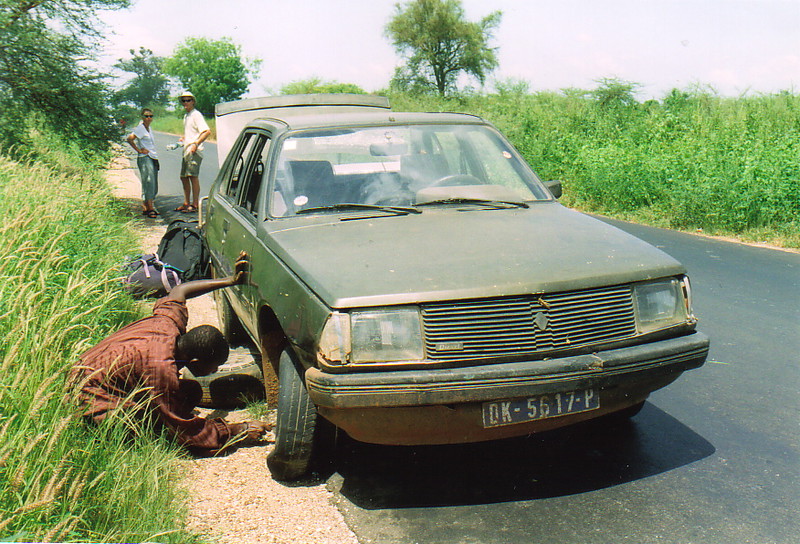
Wise men say that it's not the destination that counts, it's the journey, but obviously Senegal isn't the preferred holiday destination of wizened old sages. Here, the journey is a complete pain in the arse.
In most parts of the developing world that I've had the pleasure to explore – particularly Southeast Asia and the Indian subcontinent – transport is cheap and nasty, but fascinating and effective. India's trains are a marvel, catching buses and ferries round Indonesia is easy, and in most places all you need to do to get from A to B is to rock up to the bus station, smile, mention the name of your destination, and watch as the locals usher you onto the right bus. You may have to wait for a short while, but more often than not you get where you want to go, and for a very good price. Not so in Senegal.
For reasons best known by the locals and best kept to themselves, Senegalese buses only leave the station when they're full. This might not be such a problem when you want to go from one major hub to another, but if you're hoping to take the bus to a small village out back of beyond, you can find yourself waiting most of the day for the bus to pull out. It might be a cheap way to get around, but the problem is that it takes an absolute age before the bugger's even started up, let alone pulling into port. If you have to link up three or four bus rides to get to where you're going, you're going to be drawing your pension before you get anywhere.
Another solution, the bush taxi, has a similar philosophy, though with only seven seats they theoretically take less time to fill up. The only problem is they still take ages before they leave, and in the off-season there aren't many tourists trying to see the sights and the sights themselves are as quiet as hell, so you often end up waiting for as long as you do for the bus.
The only other option is a normal taxi, which is hugely expensive in comparison with other methods, and involves bartering in the extreme. Either Senegalese cab drivers are the world's laziest or the world's greediest; it wouldn't surprise me if they're both.
It also wouldn't surprise me if the Senegalese for 'no' turns out to be «oui». It's uncanny the number of taxi drivers I ended up bumping into who said they knew exactly where I wanted them to go, and who later turned out to know Senegal about as well as your average Icelandic fisherman. Pulling over and asking the locals for directions is par for the course and adds to the excitement, as it seems most of the locals haven't a clue where they are either. Blank stares, scratched heads and slow, thoughtful chewing seems to be the local dialect, and I've seen a lot more of Senegal by taxi than I've paid for. I wish I could say this represents value for money, but it doesn't.
Perhaps the worst thing about getting round Senegal is the feeling of aggression you get from taxi drivers, bush-taxi touts or bus boys. There's none of the wide-eyed fanaticism of India, where you get swept onto your bus on a tide of smiles, head wobbles and cheers; instead it feels like Senegalese drivers regard you as an inconvenience, something that's keeping them from doing something far more important, like sleeping or drinking tea. Trying to get round Senegal makes you feel as if you're committing some kind of faux pas, and it's not cheap either. If life is a journey rather than a destination, then in Senegal, life obviously sucks.